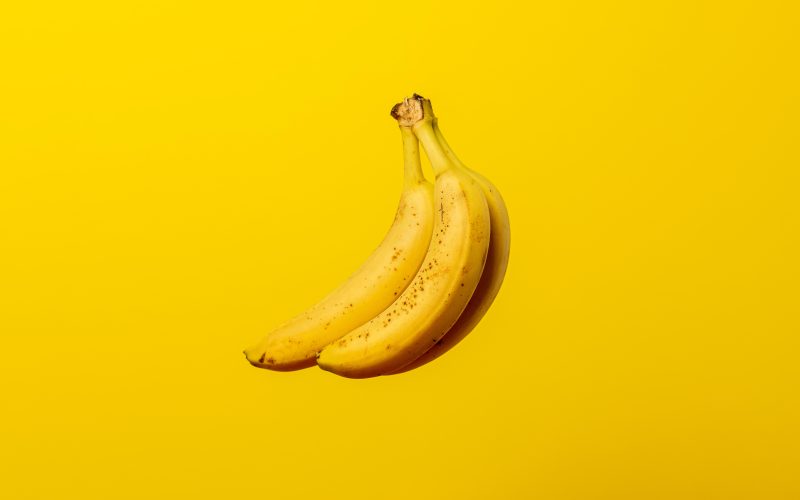Are you looking for a delicious and nutritious fruit to add to your diet? Look no further than the banana! This versatile fruit is not only tasty but also packed with health benefits. From giving you an energy boost to improving digestion, bananas are a must-have in any healthy lifestyle. In this blog post, we’ll dive into all the reasons why you need more bananas in your life – and how to enjoy them in different ways!
What are Bananas?
Bananas are a fruit that grows on trees and is native to tropical regions. They come in different sizes, colors, and shapes but the most common type is the yellow Cavendish banana. Bananas are popular all around the world for their sweet taste and versatility in cooking.
Bananas are a great source of nutrients such as vitamin C, potassium, and fiber. These essential vitamins help keep our bodies healthy by improving heart health, reducing inflammation, and aiding digestion.
Aside from being nutritious, bananas are also easy to incorporate into your diet. You can eat them as they are or add them to smoothies or oatmeal bowls for extra flavor. Some people even use overripe bananas for baking cakes or bread!
Bananas offer many health benefits while also being deliciously versatile. So why not add some more banana goodness to your daily routine?
The Benefits of Bananas
Bananas are one of the most popular fruits in the world, and for good reasons. They are not only delicious but also loaded with nutrients that offer numerous health benefits. Here are some of the benefits you can enjoy by incorporating bananas into your diet:
Firstly, bananas contain essential vitamins and minerals such as vitamin C, potassium, magnesium, and dietary fiber which help to maintain healthy digestion.
Secondly, studies show that eating bananas regularly may lower blood pressure levels due to their high potassium content. This makes them an excellent food choice for people with hypertension or those looking to prevent it.
Thirdly, bananas contain antioxidants such as dopamine and catechins which help reduce oxidative stress on cells in our bodies.
Additionally, they have a low glycemic index which means they release sugar slowly into our bloodstream compared to other sugary foods like candy or soda.
Lastly yet importantly is that consuming this fruit helps boost energy levels due to its natural sugars content making it an ideal snack before physical activities.
In summary, adding a banana a day could benefit your overall wellbeing from improved digestion and heart health to reducing free radical damage in your body.
The Health Benefits of Bananas
Bananas are known for their delicious taste, but did you know they also have many health benefits? First and foremost, bananas are an excellent source of essential vitamins and minerals such as vitamin C, vitamin B6, and potassium. These nutrients help to keep the body functioning properly by supporting immune function, nerve function, and heart health.
Additionally, bananas contain fiber which aids in digestion and helps regulate blood sugar levels. This makes them an ideal snack choice for those looking to maintain a healthy weight or manage diabetes. Bananas may also improve kidney health due to their high potassium content which can reduce risk factors for kidney disease.
Furthermore, some studies suggest that bananas may even reduce the risk of certain cancers such as colon cancer. They contain antioxidants that protect cells from damage caused by free radicals which contribute to the development of cancerous cells.
Incorporating bananas into your diet can provide numerous health benefits while satisfying your sweet tooth at the same time!
The Ways to Eat Bananas
There are numerous ways to enjoy bananas, and it’s one of the reasons why they’re so popular. Whether you prefer them raw or cooked, there is a banana recipe out there for everyone.
One classic way to eat bananas is by peeling them and eating them as a snack on their own. It’s an easy and healthy option that requires no preparation at all. Bananas are also great in smoothies, adding creaminess and natural sweetness to your drink.
A popular breakfast option is banana pancakes, which can be made with mashed ripe bananas instead of eggs or dairy milk. If you have overripe bananas lying around in your kitchen, turn them into banana bread – it’s moist, sweet, and makes for a perfect dessert or snack.
Banana chips are another yummy way to eat this fruit; slice the bananas thinly and bake or fry until crispy. You can also use sliced bananas as a topping for oatmeal bowls along with nuts and honey for added crunch.
For those who love experimenting in the kitchen, try grilling whole peeled bananas until they’re caramelized on both sides then serve with ice cream – delicious!
In summary, whether eaten raw or cooked into various recipes like pancakes or breads- There’s certainly more than one way to incorporate nutrient-rich bananas into your diet!
The Problems with Bananas
While bananas are a nutritious and delicious fruit, there are still some potential problems associated with them.
One issue is that bananas have a high sugar content compared to other fruits, which can be problematic for people with diabetes or those trying to limit their sugar intake. However, the glycemic index of bananas is relatively low due to the fiber content, so they may not cause as much of a blood sugar spike as other sugary foods.
Another problem with bananas is that they can quickly ripen and spoil if not stored properly. This can lead to food waste and frustration when your bunch of ripe bananas suddenly turn brown before you have a chance to eat them.
Some people may experience an allergic reaction to bananas. The symptoms can range from mild itching or swelling in the mouth to more severe conditions like anaphylaxis in rare cases. If you experience any adverse reactions after consuming bananas, it’s essential to consult with your healthcare provider.
Despite these issues, most people can enjoy the many health benefits of eating bananas in moderation while taking appropriate precautions such as storing them correctly and monitoring their blood sugar levels if necessary.
Conclusion
Bananas are a delicious and nutritious fruit that should be a regular part of your diet. They are high in fiber, vitamins, minerals and antioxidants which can help improve your overall health. Bananas can also aid in weight loss and digestive health due to their high fiber content.
There are many ways to enjoy bananas such as eating them raw or adding them to smoothies, pancakes or oatmeal. However, it is important to note that some people may have allergies or sensitivities to bananas and should avoid consuming them.
If you’re looking for an easy way to add more nutrients into your diet while satisfying your sweet tooth at the same time, grab yourself a banana!










